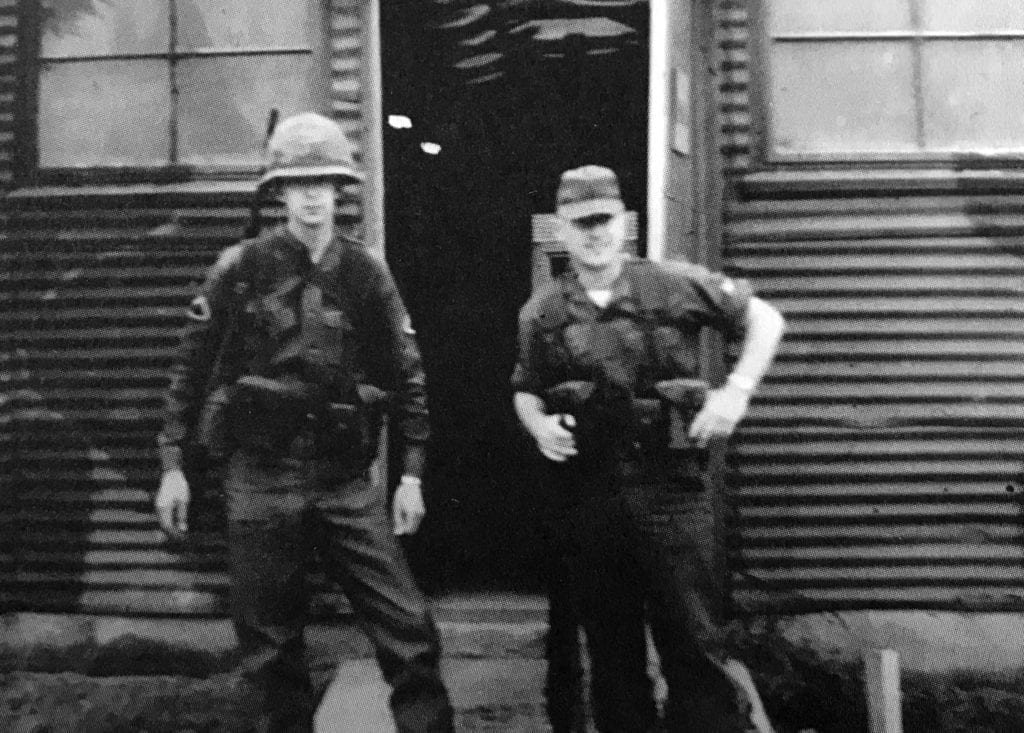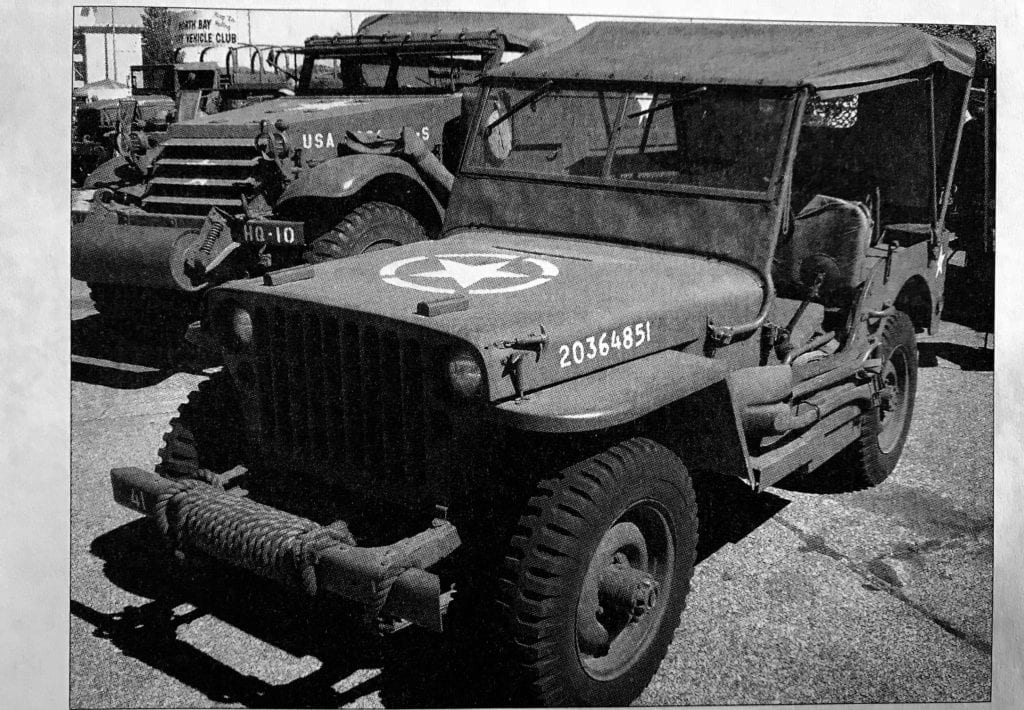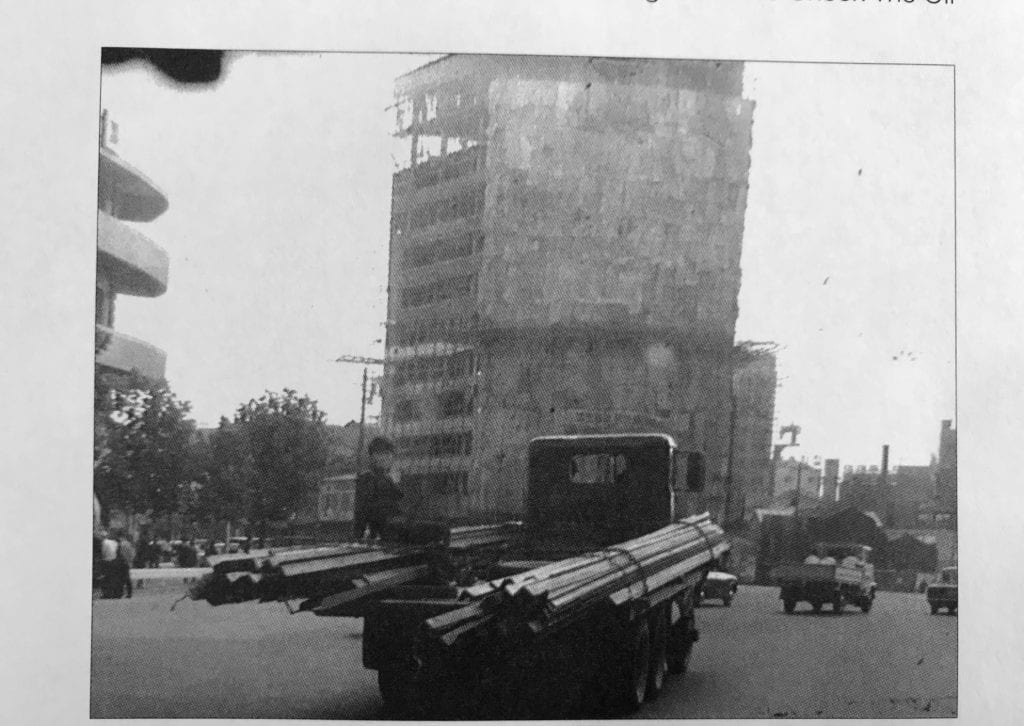
Back in late October, I was at Shoreside filling up jerry jugs for a last trip down Alaganik to close up our duck cabin for the year.
A large pickup pulled up on the other side of the pump island, and out jumped Kimmi Simpler. She walked around, popped the hood, climbed on the bumper, and proceeded to lean in and check the oil.
“Hey,” I hollered. “You want to check mine too?”
The response was, “Sure.” Kimmi, I discovered, took Automotive Mechanics and Welding classes while attending high school in Whidbey Island, Washington.
I said I was kidding, as it was something I did on a fairly regular basis.
What I didn’t add was this habit came from a lesson learned 50 years ago in South Korea, of all places.
In the fall of 1968, with war still raging in Vietnam, I was drafted into the U.S. Army. In May of 1969, after spending almost a year of training stateside, I was sent to Korea for a 13-month tour of duty.
The U.S. maintained a substantial force there. Over 55,000 troops were scattered across South Korea, as North Korea continued to agitate along the DMZ border at the 38th parallel, which was created following a “Police Action” that began with a North Korean invasion of the south and lasted from 1950-1955. (Fifty years later, the North Koreans continue to agitate.)
I reported to duty at Headquarters, 55th Maintenance Battalion, at Camp Humphreys, a base 40 miles south of Seoul.
In a Boston accent barely understandable, I was greeted by Staff Sergeant Schwab. He proceeded to review my 201 Personnel File (a history of training, education, background, etc.)
“I see you have been through radio operator school at Ft. Ord plus signal school at Ft Gordon and are to be in charge of our communications section,” Schwab said. “That’s great, but we don’t have one.”
Welcome to the U.S. Army.

“But not a problem. We’ve got lots you can do here, since you can type 50 wpm, operate any radio the Army has, and went through driver training too. Plus, I see you have a top-secret clearance and finished crypto-analysis school. What the hell is that?”
“Can’t tell you, Sergent. It’s top secret,” I said.
That got a chuckle.
“OK. Hey, can you play softball? Our catcher just transferred out.”
Say what?
“Sure. I played a little as a kid, and some intramural at Oregon State.”
“Great. Get settled in, and in a couple days we’ll give you a tryout.”
A week later, Schwab introduced me to Sergeant Major Lovelace, an extremely fit “lifer” who had attained the highest enlisted rank in the Army and also happened to be a helluva pitcher for the Hq 55th squad that was among the best on the post.
The tryout was brief. After warming up with some fastballs, Lovelace knocked me out with his first breaking ball, a riser I took flush on the forehead.
Schwab, who coached the team and played first base, had been observing. After loaning me his handkerchief for a bloody nose, he suggested I play the outfield. Roger on that.
Thus, began my tour in Korea at Hq 55th, and as the leadoff hitter for our team. My job was to get on base and being 5 feet 5 inches helped. I would draw a walk, steal second, advance to third on a bunt and score on a sacrifice. Lovelace would mow ‘em down, and we would win by scores of 1-0 or 2-1. Plus, I was scoring points with SM Lovelace, who turned out to be a great guy.
We were atop the standing and winning has its perks. In mid-August, Schwab handed me a packet of communications, with these orders.
“Go down to the motor pool and draw a jeep. Take all this stuff to Hq 8th Army, in Seoul. And take PFC Wyatt with you as a navigator.”
Yippee! A trip to the big city. Cruising around Korea in a jeep. Rumor had it there was a McDonalds on base at Seoul. Visions of Big Mac’s with fries danced in our heads.

We scrambled down to the Motor Pool with our orders. Alas, the Motor Pool Sergeant said all the jeeps were in use or going through routine maintenance. However, we noticed a shiny one parked amongst some other trucks.
“What about that one?”
“Nope. That’s the Sergeant Major’s jeep.”
Pause.
“Hey, these orders have top priority. They came from Sergeant Lovelace’s Hq.”
Pause.
“OK. Sign for the jeep. And if you ding it up, it is going to be your a – – .”
So off go Wyatt and I. After navigating through the narrow dirt streets of a village right outside our base, we hit Hwy. 1, appropriately named, as it was the only paved road in Korea at that time.
Traffic was light, mainly military, plus a few Korean busses, and a number of small overloaded tricycle-style pickups, with only one wheel in front.
We crested a hill, and looking a mile ahead, could see a line of stopped traffic. Uh oh, an accident?
No, it was a surprise roadside maintenance check for every military vehicle on the highway. When we went through, a Spec 4 mechanic said, “Nice looking jeep” at the start, and then a chilling, “You might want to check the oil,” prior to exit.
Double uh oh. After dodging hectic traffic in crowded downtown Seoul, whose streets were five lanes wide, but with no lines on the road, our first stop was to drop off the communications, then fuel up and add oil, before loading up on Big Macs.
As ordered by Sgt. Schwab, we made it back before dark and returned the jeep to the Motor Pool.
The next day, Schwab asked us how it went, and we both said, “Great, thanks Sarge,” with no mention on the roadside check.
The following morning, Schwab greeted us with, “Sergeant Major Lovelace would like to see you two.”
We knocked on his door and heard, “Enter.”
Marching to the front of his desk, we stood at attention, and snapped out salutes.
“At ease, troopers.”
I glanced down and noticed a copy of The Stars and Stripes, a military newspaper printed by the U.S. Army for various theatres around the world, lying open on his desk.
Have either of you seen today’s paper? In unison, “No Sergeant.”
You might want to look at the front page.
Dead center, a picture of his jeep, under the headlines, “Maintenance Battalion jeep scores lowest in Korea on roadside check.”
Gulp.
“Before you say anything, be advised I checked with the Motor Pool sergeant this morning.”
Gulp.
“Wyatt, get out of here. I want to talk with Sergeant Shellhorn.”
And close the door when you leave.
I stood in silence. Which was the right thing to do.
“Don’t ever use my name again to get a favor, if you plan on remaining a sergeant, and batting leadoff for our team.”
“And check the damn oil before you drive any Army vehicle again.”
Dismissed.
So, thanks for the oil check offer, Kimmi.
Fifty years ago, in a strange foreign country 3,800 miles away, I learned a lesson … and I still check the oil.
Note: This and countless other stories about adventures in Army and referee stripes can be found my recent book “Balls & Stripes.”





